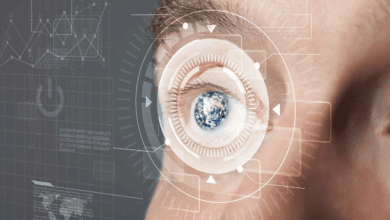Artificial Intelligence (AI) has become an increasingly important topic in recent years. With the advancements in technology, many people worry about its impact on society. In this article, we will discuss how to worry wisely about AI and what steps we can take to mitigate its negative effects.
Understanding AI
Before we dive into the topic of worrying wisely about AI, we must first understand what it is. AI is a broad term that refers to the ability of machines to perform tasks that typically require human intelligence. This can range from simple tasks like recognizing speech to complex ones like playing chess. Its the next level of being a Voice Assistant.
AI has the potential to revolutionize many industries, from healthcare to transportation. However, it also poses significant risks, such as job displacement and loss of privacy.
Don’t Worry About AI Breaking Out of Its Box, Worry About Us Breaking In
- AI is designed to operate within strict boundaries, but humans are the ones who set those boundaries in the first place.
- Researchers are more concerned about the possibility of humans manipulating or abusing AI systems than AI becoming uncontrollable.
- Even with the best intentions, human operators may unintentionally cause AI to act in ways that are harmful or undesirable.
- As AI becomes more powerful and pervasive, the risks of human interference and manipulation grow.
- The potential for hackers, criminals, or hostile nations to exploit AI systems for malicious purposes is a major concern.
- Ensuring the security and integrity of AI systems is a complex challenge that requires ongoing vigilance and expertise.
- In some cases, AI may be used to perpetrate cyberattacks or other forms of digital warfare, potentially leading to widespread harm and destruction.
- The development of ethical and legal frameworks for AI is essential to prevent unintended consequences and ensure accountability.
- As AI becomes more advanced and integrated into society, the need for responsible governance and oversight will only increase.
- While the benefits of AI are clear, it is important to approach its development and deployment with caution and foresight to minimize the risks.


Benefits of AI
While there are certainly concerns about the rise of AI, it is important to also consider the numerous benefits that smart technology has already brought to our lives. Here are just a few of the ways that AI is already making a positive impact:
- Healthcare: AI is being used to develop new treatments and medications, as well as improve diagnostic accuracy and personalize patient care.
- Transportation: Self-driving cars and trucks have the potential to significantly reduce traffic accidents and fatalities, while also improving fuel efficiency.
- Finance: AI algorithms are being used to improve fraud detection and risk management, as well as personalize investment advice.
Worrying Wisely About AI
It is natural to be concerned about the impact of AI on society. However, we must ensure that our worries are well-founded and based on facts. Here are some steps we can take to worry wisely about AI:
- Educate ourselves: We must educate ourselves about AI and its potential impacts. This will help us make informed decisions and avoid spreading misinformation.
- Stay informed: We must stay up-to-date on the latest developments in AI. This will help us identify potential risks and opportunities.
- Advocate for responsible AI: We must advocate for the responsible development and use of AI. This includes ensuring that AI is designed to benefit everyone, not just a select few.
- Engage in dialogue: We must engage in dialogue with policymakers, industry leaders, and other stakeholders to ensure that the benefits of AI are realized while minimizing its negative impacts.
- Embrace change: We must embrace the changes that come with AI and adapt accordingly. This includes retraining workers and investing in new technologies.
Conclusion
In conclusion, worrying wisely about AI like chatGPT is essential for ensuring that its benefits are realized while minimizing its negative impacts. By educating ourselves, staying informed, advocating for responsible AI, engaging in dialogue, and embracing change, we can ensure that AI works for everyone.







Ariya Baxter
ilija pieloth
I’m always excited to read your posts, and this one exceeded my expectations. Excellent work!